By David Underhill –
MOBILE, Ala. – Thoroughbreds charging around the final turn and down the homestretch. Blinders strapped on the sides of their faces to keep their attention on the finish line straight ahead. Preakness Stakes at Pimlico racetrack in Baltimore. Second leg of the Triple Crown later this week.
Delegations of civic leaders trooping to Baltimore in recent years. Touring the city to ooooh and ahhhh over its urban revival efforts. Returning to Mobile, among other cities, gushing with praise for what they’d seen. Repeating the Inner Harbor’s reputation as “the model for post-industrial waterfront redevelopment around the world.” Extolling the Rouse real estate company’s renewal projects there. Vowing to emulate Baltimore’s example.
What blinders were they wearing?
The Baltimore springing into view lately was more like the fictional one in the gritty TV series The Wire than the supposedly real one reported by the awed visiting delegations. A paddy wagon ride leaves an arrested man dead with a broken neck and protests convulse the city. Hundreds more are arrested, stores burn, the national guard deploys to reinforce the police, and the global media descend.
In a few days Baltimore’s cultivated image evaporates. It was a mirage.
Lottery Playing Cities
A botox treatment of the waterfront, like the Inner Harbor project, plus some decorative touches elsewhere could put a smiley face on the city and have visitors smiling too—as long as they kept their blinders on. But behind that facade most of Baltimore remained unfixed.
So does most of urban America. A quarter century ago in Los Angeles a gang of uniformed cops beat Rodney King nearly to death for a traffic violation. On videotape. Which became evidence in their trial. Verdict: not guilty. The city burned. Scores died.
The same happened there another quarter century before that. After each eruption a resolve to do better rose from the ashes. Studies identified the persisting problems. Politicians vowed to lead. Funding sources pledged budgets. Preachers summoned heavenly assistance. And nothing equal to the task happened.
Every major and medium American city is a Los Angeles or a Baltimore in waiting. By chance some will evade that fate. Others will not. It’s a lottery. An ugly incident on the streets of one city will pass with resigned shrugs as a normal event, while a similar incident elsewhere will set the place ablaze. Luck chooses the winners and losers.
A student from India now at the university in Mobile went leafleting about a political cause in an inner city neighborhood last year. He returned to the campus stunned, saying he’d never expected to see that in America. Festering slums and poverty were familiar to him in India. But what he’d just seen in downtown Mobile was as bad or worse than anything he’d known back home. He was sad too—but mostly stunned.
Luck is not kind to circumstances like that. It’s also erratic. So keeping the blinders on and plunging straight ahead might work for a while, perhaps a long while. But if a chance to improve the odds appeared, it would be wise to take the opportunity.
Revolving Calamity Fund
By accident BP has provided just that, the accident being its offshore oil well that ruptured five years ago. Along with the tar balls on beaches and marshes, the legal consequences keep washing in. They may never cease but at some point they will include billions of dollars in fines and other penalties BP must pay.
Part of that total has already gone to injured individuals and businesses. Most of it remains snared in courts and bureaucratic procedures for selecting projects to receive the money. Some of them will try to restore damage done by BP’s vomit. Some are couched as resiliency measures fortifying the coast against injury by future oil spills. And some will give an economic boost to coastal zones, apart from specific oily damages.
In the Mobile area these economic projects will likely include ones increasing the chances for a repeat of the accident that made the funds available. Some local officials with a role in selecting projects have said the money should go toward enlarging the ship channel through the bay so more mammoth oil tankers can get to the docks in downtown Mobile. And these officials have also advocated spending the BP bonanza on bridges and highways to move more traffic.
Amid such mega projects are sprinkled smaller, prettier ones like rebuilding oyster reefs and reviving marshes. These are the happy pills slipped into a death row inmate’s final meal so he’ll be tranquil and cooperative when strapped onto the gurney for the fatal needle. The major infrastructure ventures will drain most of the BP cash flow, and they are for moving more oil through the harbor or for burning more of it in vehicles on the expanded roadways.
If these looming decisions sound too warped to be true, consider one already made. In the name of restoring damage done by BP’s oil, its money will finance construction of a convention resort hotel on the beach in Alabama’s only gulf shore state park (unless a lawsuit filed by astonished and aggrieved environmentalists can stop it, which is unlikely).
When something that absurd can happen it’s also possible for an enlargement of the coastal oil economy to happen with funds from the oil calamity that already happened. How much less absurd it would be to use the money for a turn in a different direction.
Maze Exit Plan
After imposing a high-stakes testing regimen on schoolkids, adults received their own test in the form of the exploding offshore oil well. So far, the adults are flunking. They have learned nothing. They are drilling again in deeper, riskier waters with little or no improvement in safety and restoration methods.
The pot of BP money at the end of the oily rainbow is a make-up test. And the adults are on the verge of flunking that too by reverting to familiar habits.
But this pot presents a rare opportunity for emancipation by investing decisively in alternatives. Other places have done this. Although no country has weaned itself entirely off oil and other fossil fuels, a few have made much progress. They’ve had the advantage of favorable governmental policy and financing, which is largely missing in America.
The BP money and local decisions about using it could supply what has been absent. This would require a deliberate public policy saying:
None of the money can be used to reconstitute or enlarge the oil economy—not for infrastructure or anything else that promotes the exploration, production, transport, or combustion of oil.
Some of the money can be used for projects that durably repair places such as marshes and oyster reefs injured by the oil industry and for parks or other coastal public amenities.
All the rest of the money must be used for projects that lead away from the oil economy and toward an alternate energy one.
Wind farms and solar panel fields are the obvious big budget items. Another in the gulf shoreline stretch could be devices for extracting energy from waves and currents. Determining whether that’s practical might be a focus of funding for research, most of which to date appears aimed toward studying the effects of oil spills and the efficiency of various remedial methods. The BP dollars should aim instead toward research and implementation making this region a leader in alternate energy technology.
While that supposes long, methodical development, other things with large impacts can be done immediately. Huge amounts of energy are wasted by leaky, uninsulated, inefficient buildings. Sunlight turning homes into ovens needing air conditioning for habitation could instead fall on solar panels generating electricity for those homes and for the batteries of vehicles in the garages.
Working It Out
Doing these things requires money (thank you, BP) and labor, which is standing on the street corners of every inner city warily watching police patrols roll by. Offer real jobs to those folks and see what happens.
The fables about lazy louts and thugs waiting for welfare or plotting criminal schemes will be exposed as largely lies. Whenever employment is offered doing useful work for pay supporting a family, stampedes occur for those jobs.
Use the BP bucks for such jobs insulating homes, plugging air leaks, installing solar panels—and whatever else can be done, right now, with existing technology and training that reduces energy waste and promotes new energy forms. Do this in a large, intensive fashion across the gulf coast and soon delegations will come here to see how urban revitalization should be done.
The visitors won’t need blinders to keep their attention riveted on selected cosmetic projects because the whole place will be worthy of study and emulation. Nor will the visitors need masks for the tear gas and armed escorts. The residents will be busy rebuilding their own neighborhoods, and they will police themselves to prevent any remaining ruffians from spoiling this work.
And environmental issues will acquire new battalions of backers because those who paid little attention before in their scramble for survival will now have livelihoods directly linked to the new green economy.
But none of these things can happen unless the jobs are real and the scale is massive and regional. Simply announcing a policy of moving away from the oil economy would guarantee arousing everybody from the top oil execs and investors to the bottom oil field workers against the plan. The alternate energy employment must be visible, believable and simultaneous with the steps away from the oil economy.
Vision Of Sanity
This applies both to areas like Mobile, not yet soaked with oil but striving toward that, and to south Louisiana, saturated with the oil industry for generations. The threat of gay marriage has these places in a tizzy, but the truly scandalous pairing is the intimate public embrace between oil and politics.
Try prying those two apart and they will both turn on the meddler. They cannot be separated except by a mobilized citizenry, and such a movement is always far fetched and fanciful—until it happens.
Preparation for that includes sketching a mechanism that could help it occur. BP’s reckless drilling and spilling has spawned the funding to launch a substitute for everything BP’s blown out well represents.
Divine intervention might bring that about, but persistence and insistence by people is a more probable route. May they be inspired in this direction by two thoughts.
First, that it would be a delicious irony—worthy of passing along in folklore forever—if misbehavior by big oil became the means for financing the undoing of big oil.
Second, that a popular definition of insanity is doing the same thing over and over and expecting a different outcome. By this definition the official response to the BP oil tsunami is clinically insane. The fines and compensations are going chiefly toward recovery from this oil assault or resiliency in anticipation of future ones and for infrastructure enlarging oil operations along the coast, while swearing it will all turn out OK.
This demented approach amounts to blinders clamped on the brain. Like the ones on the race horses and the civic visitors to Baltimore, these devices narrow vision to a selected objective and shut out the surrounding reality—which does not go away when rendered invisible.
Time to remove the mind blinders.


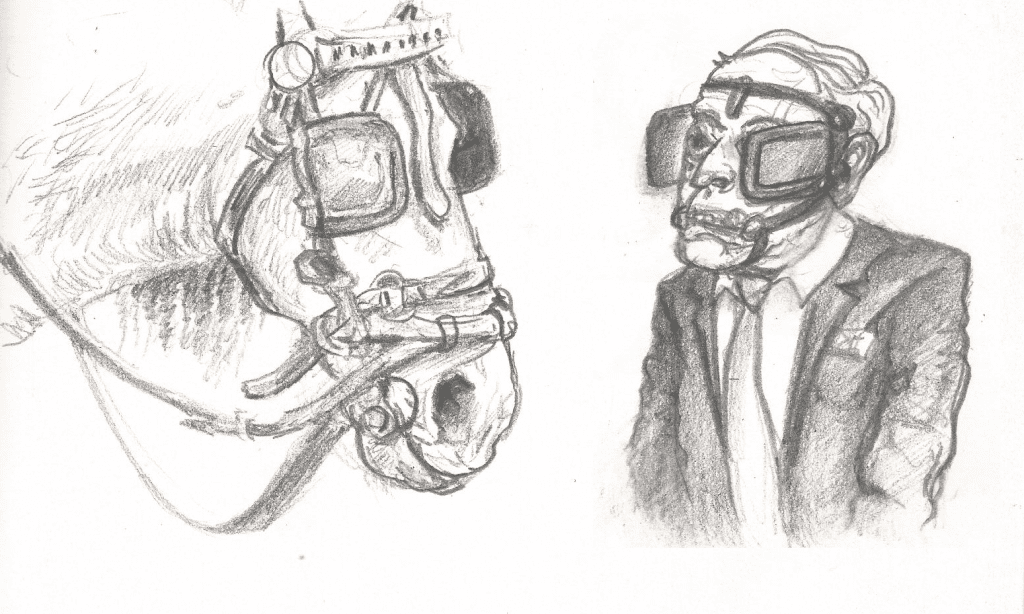
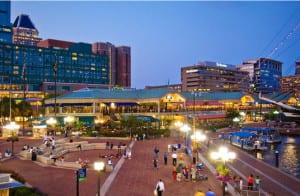
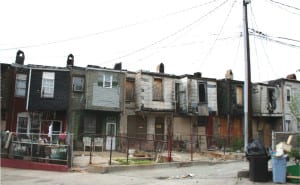


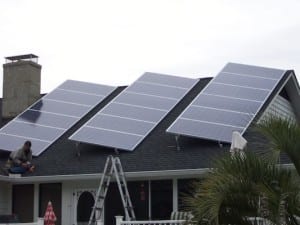
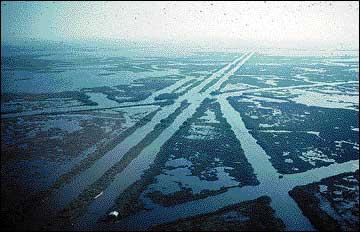












Reader Supported News - No Paywall, Google Ads, Popup Ads, Sponsored Content or A.I. - Support American Journalism with GoFundMe
Mobile wanting to be like Baltimore is sort of like Wisconsin wanting to be like Alabama. Not such a great idea.